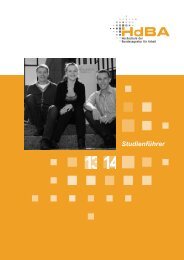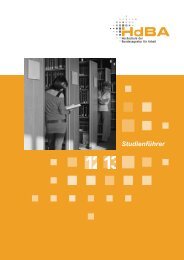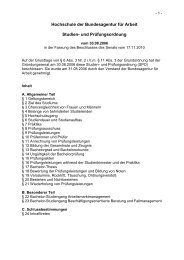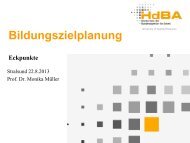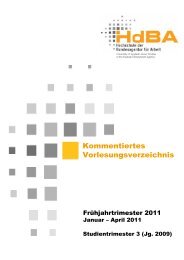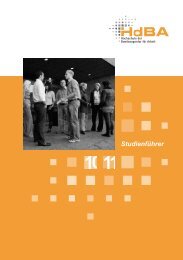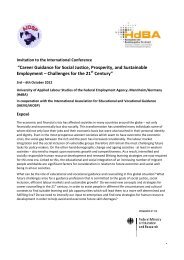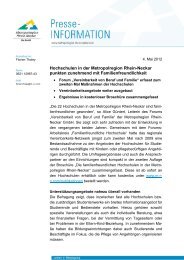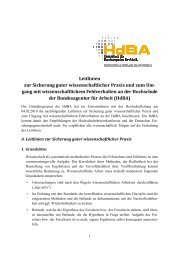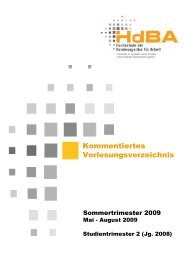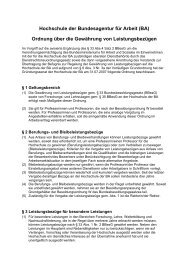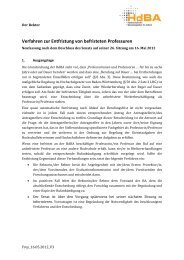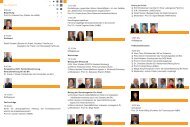Brain Drain - Hochschule der Bundesagentur für Arbeit
Brain Drain - Hochschule der Bundesagentur für Arbeit
Brain Drain - Hochschule der Bundesagentur für Arbeit
You also want an ePaper? Increase the reach of your titles
YUMPU automatically turns print PDFs into web optimized ePapers that Google loves.
��������������������������������������������������<br />
�������������������������������������������������������������������������������<br />
������������<br />
�<br />
�<br />
1.2 Unit 1: The Concept of “Culture” in Transnational and Multicultural<br />
Counselling<br />
We should start with some theoretical aspects and concepts in or<strong>der</strong> to provide a<br />
comprehensive review of the presented theme.<br />
Multicultural counselling may be discussed in the perspective of stimulating<br />
transnationality in the European idea sense on one hand and on national level in<br />
regard with helping people from ethnic minorities on the other hand. This type of<br />
counselling includes work with wide variety of ethnical, national, religious and socials<br />
groups of people.<br />
If we consi<strong>der</strong> the “culture” concept in global sense it will include demographic<br />
variable quantities such as age, gen<strong>der</strong>, place of residence, status variable quantities<br />
such as stratum belonging, educational level, income, belonging to formal and<br />
informal groups as well as ethnographic variable quantities such as nationality,<br />
ethnical origin, language and religion. Thus the multicultural idea is fundamental for<br />
all relations in counselling. Pe<strong>der</strong>sen (1991, p. 7) pleads for using the comprehensive<br />
culture concept because this is the only way the counsellor can adapt to the variety of<br />
clients from different groups and nationalities. In this sense multiculturism is not only<br />
a method but also an independent theory which in terms of counselling is designated<br />
as the “fourth power” together with psychodynamic, humanistic theory and<br />
behaviourism although the multicultural approach in counselling is relatively new.<br />
Based on Sue et al. un<strong>der</strong>standing that multicultural („cross-cultural”) is every relation<br />
in counselling in which two or more participants differ from each other in their cultural<br />
inheritance, value system and lifestyle, Speight and others (1991, p. 32) offer a new<br />
definition of the concept. They consi<strong>der</strong> the theory of the historical perspective of<br />
individuals as optimal. Accordingly, the multicultural counselling should correspond to<br />
the meeting point of cultural specificity, individual uniqueness and human universality<br />
rather than being oriented almost entirely towards cultural specificity as it was until<br />
very recently. The figure below illustrates this new definition of counselling ideology:<br />
a) each person is the same as all the others; b) the individual looks like the other<br />
people in the group; �) each person is unique.<br />
160




